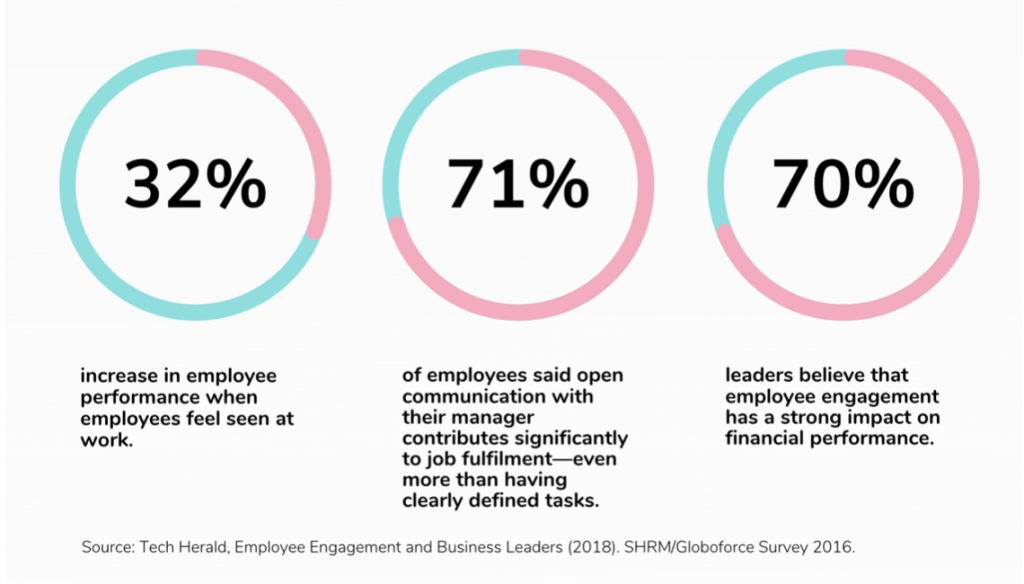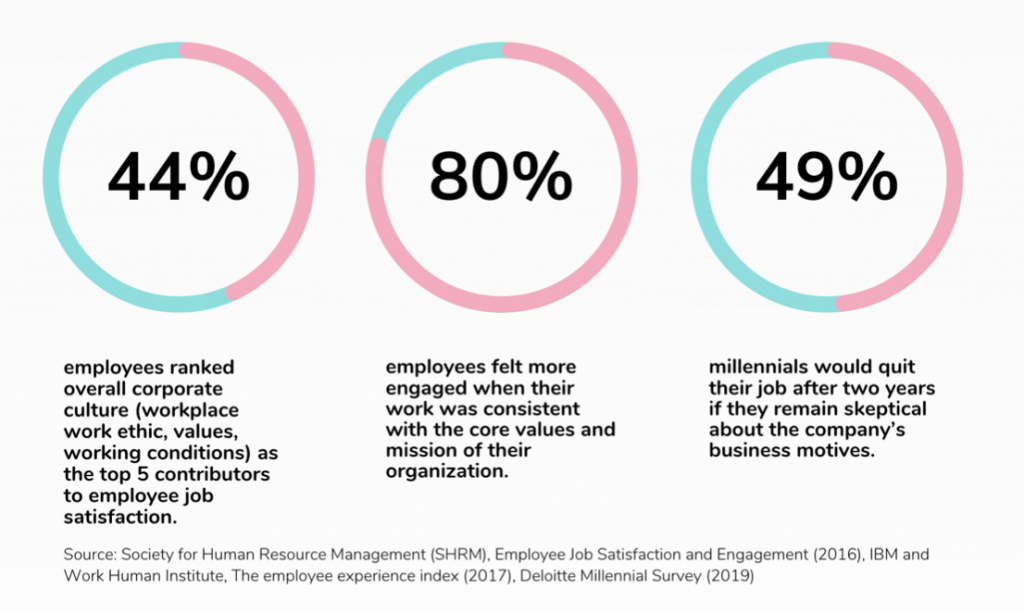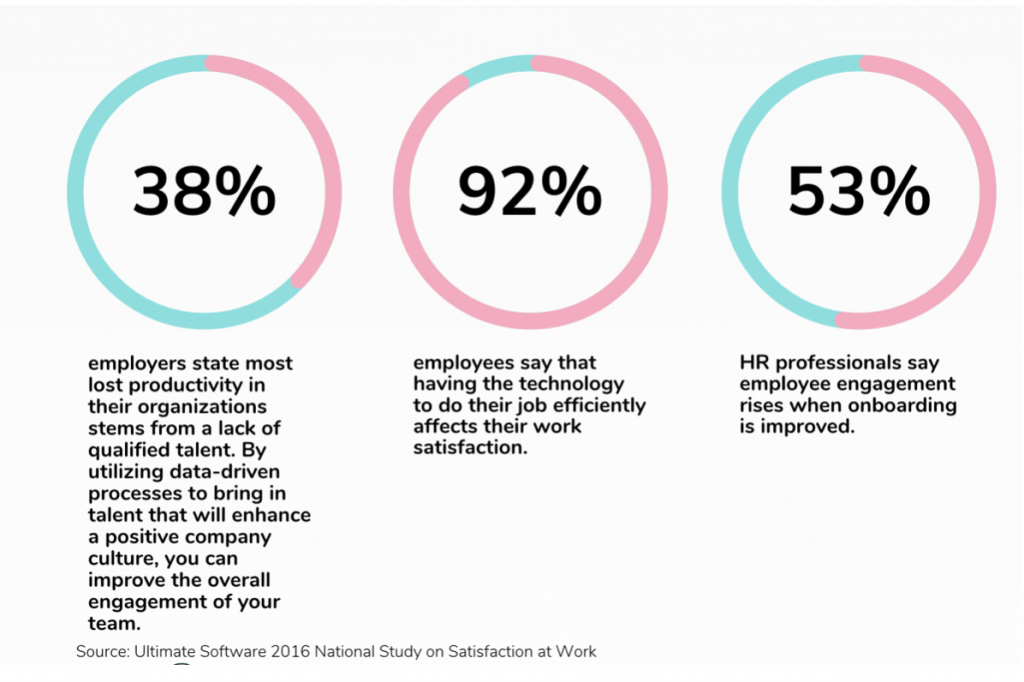
How to transform your onboarding process and why you should
When was the last time you heard someone ask for more forms to fill out? Probably never, right? Onboarding forms….

When running a business that manages people there is always good reason to aim higher. We will focus on 3 tips to adjust your work culture to bring out the best in your managers & employees . High-performing organisations are those that bring out the best in their people.
Chris White, former director of Center for Positive Actions narrows down a few points that are good practice for progressive organisations.
Have you ever been asked for your opinion at work and were not sure what to say? One of the pitfalls in leaders is not encouraging employees to speak up and failing to create a space for meaningful conversation. There might not be one single solution that makes an effective manager, however a common skill and trait of good leaders is the art of asking questions and keeping employees engaged at work and willing to speak and have their say. Making conversation & engagement as part of a management routine with one on ones or casual conversations. This will encourage employees to be comfortable in speaking up at work offer suggestions on issues that are hard for management to hear but will ultimately make the business better.
If you ask your team for their opinion and there is no response, that is a clear signal of a block in communication. Asking the question is still worthwhile, it will show employees you value their view. The fact that you have already signalled to the employees that you are open to discussing their opinion is a clear indication that their engagement at the workplace is essential and required. More positive employee experiences at work are linked to better performance, extra effort at work, and lower turnover.
According to SHRM Employee Engagement and Commitment report, engaged employees:

Key aspects of leadership include developing mission and vision statements, and communicating goals to the team. Mission statements are an indication of what you stand for as a business. However a mission statement risk being a static sentence if it is not followed up by action and lived by the business. People are attracted to a company because they demonstrate their mission statement that they operate accordingly. If the values of the company are not followed by action then employees start disengaging. Sometimes they will become distant and less engaged in their role, other times this behavior may go unnoticed. To avoid such scenarios, one should ensure that the organisation’s actions are conveying it’s values.
In November 2018, 20,000 Google employees walked out of their office because Google’s values concerning workplace sexual harassment were not handled properly. The situation was triggered when Google rewarded Andy Rubin, the ‘father of Android’, a grand farewell and $90 million in praise for his work. What Google failed to mention was that an employee at Google had accused him of sexual misconduct. Employees felt that although there had been policies in place against sexual harassment Google failed to enforce it sufficiently. The employees felt that Google should have dismissed him for sexual misconduct without pay. The employees demanded that Google revise their policies and enforce them, so that their views on sexual harassment are upheld. The employees felt so strongly about this that they risked their jobs and went on a global protest that spanned globally including Dublin, London, Tokyo and other cities. The CEO, Sundar Pichai apologised to it’s employees and pledged support for the walk out which was followed by them dismissing 48 people for sexual harassment over the past two years with no pay.

When managers and employees are united, then action is the next progression. If you communicate supportive words and promise action you can still face walkouts if employees feel that the company has not delivered.. If there is no progress, then they find an employer whose company’s values are more aligned. Therefore be responsive ,words without action plants the seeds for future walk outs and resignations.

Chris White, former director of Center for Positive Action says that high performing organisations with strong employee engagement and leadership styles are not free of problems, however they have better problems to deal with. Aiming to prevent people from walking out of their job is a low bar to set – organisations should focus on improving efficiencies, retaining their talent pool and integrating technology to ease pressure of mundane tasks and importantly in this environment making the workplace fun, inviting, and in touch with current trends such as remote working and flexible arrangements .
Technology is another important employee engagement tool that should not be overlooked. Companies now have options at their disposal to target employees that fit in well in specific environments and have the skill set to deliver higher quality of service and output instead of being consumed by repetitive tasks. Using tech to manage workflow frees up staff to be more creative and complete work in a different way.
“Employees should move beyond processes to experiences.”
Silkroad, State of Talent Report (2017) found that integrating technology in the onboarding process increases employee engagement because they feel that special care has been taken to get the compliance aspects of their role fulfilled and investment in onboarding technology appears to be paying off. Making a good first impression for a company or recruiter is essential in a candidate market. There is a lot of choice and opportunities. Candidates are in the position now of looking at offers and seeing who they would prefer to work for. Onboarding as the first interaction could be the deciding factor. Candidates in general have come to expect a streamlined, easy process. Online forms are the norm even when dealing with government departments and official documentation, so making candidates and applicants complete paper forms and documentation is not going to cut it. Below are statistics on the organizational outcomes experienced as a result of improving the onboarding process.

According to HR technology trends only 26% of companies use software and technology to drive their onboarding process for a better user experience. The results however are paying off especially with the high expectations of millennials. 53% of HR professions say that employee engagement rises when onboarding is improved.

If you feel like you should move to a digital, automated and streamlined onboarding process with no paper forms and no follow up then speak to the team at Onboarded. It’s easy, quick and painless to get started and could start saving you hours of time, data entry and follow up.
The latest tips and market insights from the Onboarded team.

When was the last time you heard someone ask for more forms to fill out? Probably never, right? Onboarding forms….

Five tips to improve the candidate onboarding experience Onboarding is usually the first touchpoint…

A quick start guide to Onboarding Onboarding, orientation, induction – it’s all the same, right? Wrong….
The simple, digital platform which onboards candidates and employees in minutes with one link and sends the information to your CRM.
Location
Suite 612 101 Overton Road, Williams Landing VIC 3027
Support
support@onboarded.com.au






